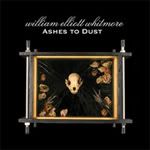the only thing left to do is sing.
Every now and again everyone gets reinvigorated by some force that reinforces a love in their life. Sometimes a man can be convinced that he's traveled a road as far and long as he can and giving up is the only thing he has the energy to do. The results of that decision can range from depression to relief. The tragedy is that sometimes this is the final page and there is nothing left but the end itself. The miracle is that this isn't always the case. Occasionally the clouds will part, the demons cease, the soul reignites and the body has the life to recognize that not only is the road he's traversed worthwhile, but that it's the best possible place he could have ever been. These miracles occur in all shapes and sizes.
Last night a miracle occurred in a room occupied by no more than one hundred people. On the stage of the Grog Shop in Cleveland, Ohio sat an old handmade stool, and two well worn cases. Sitting on one case was a lived-in acoustic guitar ans on the other an aged beaten-up banjo. Sitting on the stool was an enigma of a man. Heavily tattooed with a plethora of non-specific tattoo-parlor-wall designs, donning a clothing style most commonly attributed to a ska/punk band member, William Elliott Whitmore picked up his banjo and began to fill his large open throat with a thick sound. Slightly raspy in nature, his voice projected and carried throughout the small room, silencing all around him. Not once did he pluck one string or strum one chord is his entire opening number, but he had the full attention and awe from every eye and ear in the building. When a few dozen people in one small space all feel the same thing, you can sense it. No more than a handful of listeners would have known about Mr. Whitmore before this night and now few will forget.
W.E.W. used the jaw-dropping power of his worn, lived-in, traveled, heavy voice to sing songs with souls identical to the sound he emitted. His heel stomped hard on every downbeat, and his banjo (and occasional guitar) playing offered the perfect setting for Whitmore's stories. And his tales are told with a mix metaphor and fact and a sincerity that comes from a farm boy well versed in a spirituality that only the earth itself can provide. The storytelling of Johnny Cash and the voice of Tom Waits coming together to create hearty songs from the heart of a man from the heartland in a genuine and new way. His is the type of performance than can never accurately be described and has the power to silence and mold a person into a new man, re-energized to follow his own road with a new vibrancy and spirit.
William Elliott Whitmore has released two full length albums for Southern Records and his third, Song of the Blackbird is due out in August. These songs from his most recent release represent the idea and the sound, but not the puissance.

William Elliott Whitmore's "Diggin' My Grave"
& "Porchlight"
from Ashes to Dust
Last night a miracle occurred in a room occupied by no more than one hundred people. On the stage of the Grog Shop in Cleveland, Ohio sat an old handmade stool, and two well worn cases. Sitting on one case was a lived-in acoustic guitar ans on the other an aged beaten-up banjo. Sitting on the stool was an enigma of a man. Heavily tattooed with a plethora of non-specific tattoo-parlor-wall designs, donning a clothing style most commonly attributed to a ska/punk band member, William Elliott Whitmore picked up his banjo and began to fill his large open throat with a thick sound. Slightly raspy in nature, his voice projected and carried throughout the small room, silencing all around him. Not once did he pluck one string or strum one chord is his entire opening number, but he had the full attention and awe from every eye and ear in the building. When a few dozen people in one small space all feel the same thing, you can sense it. No more than a handful of listeners would have known about Mr. Whitmore before this night and now few will forget.
W.E.W. used the jaw-dropping power of his worn, lived-in, traveled, heavy voice to sing songs with souls identical to the sound he emitted. His heel stomped hard on every downbeat, and his banjo (and occasional guitar) playing offered the perfect setting for Whitmore's stories. And his tales are told with a mix metaphor and fact and a sincerity that comes from a farm boy well versed in a spirituality that only the earth itself can provide. The storytelling of Johnny Cash and the voice of Tom Waits coming together to create hearty songs from the heart of a man from the heartland in a genuine and new way. His is the type of performance than can never accurately be described and has the power to silence and mold a person into a new man, re-energized to follow his own road with a new vibrancy and spirit.
William Elliott Whitmore has released two full length albums for Southern Records and his third, Song of the Blackbird is due out in August. These songs from his most recent release represent the idea and the sound, but not the puissance.

William Elliott Whitmore's "Diggin' My Grave"
& "Porchlight"
from Ashes to Dust


0 Comments:
Post a Comment
<< Home